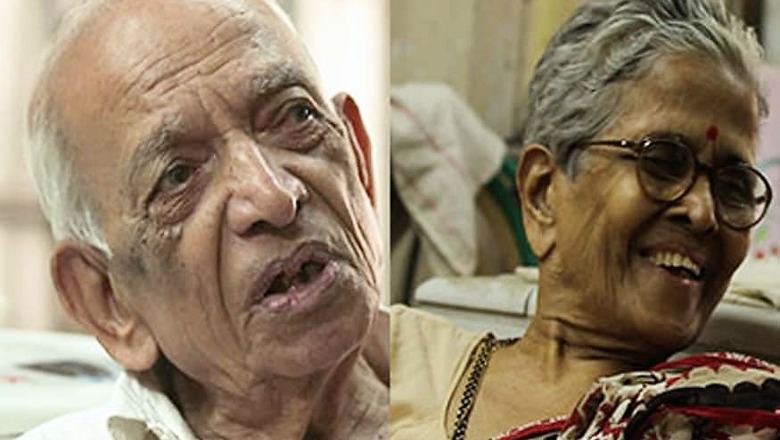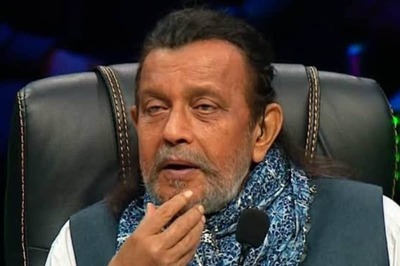
views
Mumbai: An elderly couple who had sought the president's permission to be allowed to end their lives has decided they are going to die in a "dignified way" -- with the husband first strangling the wife, and then asking that he be hanged for the crime.
Iravati Lavate, 78, today said she had put the instructions in writing.
Lavate and her husband Narayan, 87, had written to President Ram Nath Kovind in December, seeking permission for euthanasia or mercy killing.
She said expecting that permission would not be given, they had decided on the plan and added that it would mean they would both get their death wish.
"Yes, I have written a letter, in Marathi, in the presence of two witnesses, stating that my husband had made a request for active euthanasia for both of us but, anticipating that the President of India would not listen to our plea, we have decided to end our lives in a dignified way," Iravati told PTI.
The couple lives in the Thakurdwar area of South Mumbai.
Iravati worked as a school principal while her husband was a supervisor at the Maharashtra State Transport Corporation.
The couple said they will wait till March 31 to hear from the president's office.
"'After March 31, you (the husband) can strangulate me. After that you will be given the death sentence for murdering me'," she said, quoting from the letter which she has handed over to her husband.
"We chose this option after our efforts to get permission for active euthanasia failed," she said.
The childless couple had said earlier that they wanted euthanasia together because they did not want a situation where one of them outlived the other, and was left "alone and helpless".
They chose not to have a child by mutual consent as they did not want to add to the population, Iravati said.
"Having children in the already over-populous country and the world would have been a social crime. We got all societal benefits, and now we do not have anything to offer to society except our organs, and we are willing to do that (donate the organs). We have approached the (government-run) J J Hospital for donating our organs," she said.
If the Indian Constitution gives people the right to live, it should also give them the right to die in a dignified way, the couple argues.
"I cannot hire contract killers or give them a 'supari' (contract) to kill me. Therefore, the only option left for us is that I kill my wife and hang under the law," said a smiling Narayan Lavate, who was earlier a Right to Information activist.
He has also been pressing for euthanasia, he said.
"I have been advocating euthanasia since 1987, but no government has responded to my plea. You know what happened to Aruna Shanbaug who died in a vegetative state after 42 years," he said.
Shanbaug, a hospital nurse whose brain was damaged when a ward boy assaulted and raped her, remained in a vegetative state for four decades before dying in her hospital bed. Some activists had moved court seeking passive euthanasia for her, which was not granted.
"We don't want to die with ailments. It's time we changed the law and allow euthanasia," he said.
Nitin Lavate, a relative, said friends and family members were trying to make the couple change their mind.
"We have been trying to persuade them not to take such a step. We are optimistic that uncle and aunt will not take such a drastic step," he said.
When asked whether he would really be able to strangle his much loved wife, Narayan said, "I can do that so that she doesn't have to die a painful death after a prolonged illness."



















Comments
0 comment